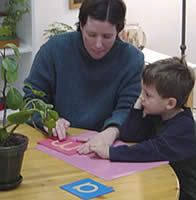If a stage of reading development has not been learned, students will flounder in their reading ability, which also affects their writing skills. It is imperative that teachers make certain students fully understand each stage of the reading/writing process before they move on to the next level.

Jean Chall, world renowned reading expert and psychologist for fifty years, and past professor emeritus at Harvard University cites her five stages of reading development below:
Stage 0:
Pre-reading Stage: Unsystematic accumulation of understandings about reading between pre-school and kindergarten.
Stage 1:
Initial Reading or Decoding Stage (grades 1-2; Ages 6-7 ) Student’s central task is learning arbitrary letters and associating them with corresponding parts of spoken words. Learner acquires knowledge about reading. Phonics.
Stage 2:
Confirmation, Fluency, Ungluing from Print, Automaticity Stage (grades 2-3; Ages 7-8) Consolidation of what was learned in Stage 1. Requires reading many easy and familiar books for developmental reading. Gradual increase in functional and recreational reading. Common use of the basal readers. Functional reading important - content area texts - here’s where we fail in our attempts to prepare our students. Range of possible recreational reading increases.
Stage 3:
Reading for Learning the New Stage: A First Step (Grades 4-8; ages 9-13) Readers need to bring prior knowledge to their reading. Children acquire facts.
Stage 4:
Multiple Viewpoints Stage: (High School; Ages 14-18) Should include instruction in reading/study skills, and reading strategies for success.
Stage 5:
Construction & Reconstruction Stage: College ; Ages 18 & up) Adult literacy should stress acquisition of skills useful to the participants and the ability to apply those skills.
These are the stair steps of reading development. They are built upon and climbed, as students grow in their literacy development. Sometimes students get stuck in one of the stages. It's my job as a literacy specialist to "unstick" them so they can move on to the next phase and beyond, empowering them to become enthuiastic readers and writers.
By Pamela Beers



0 comments:
Post a Comment